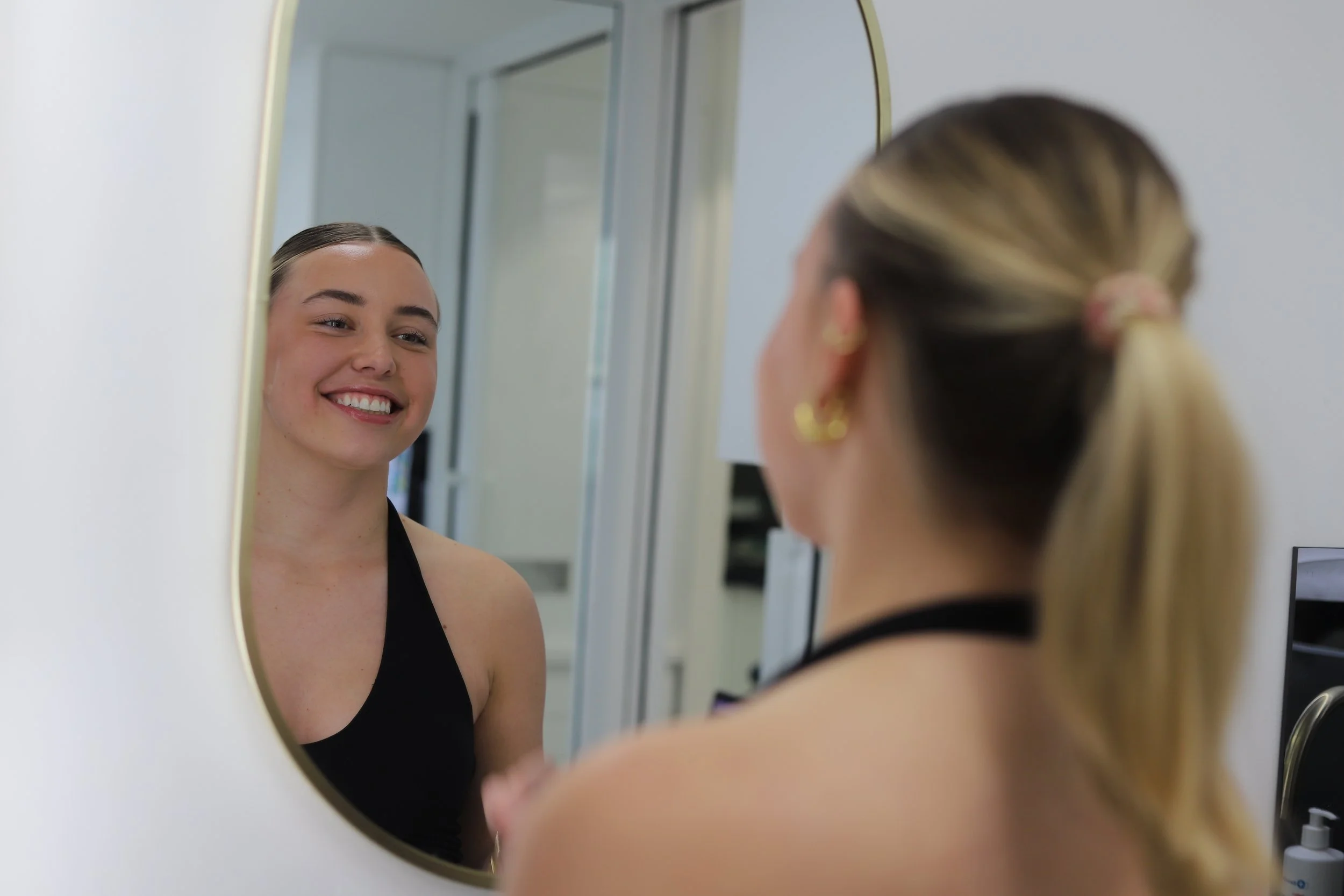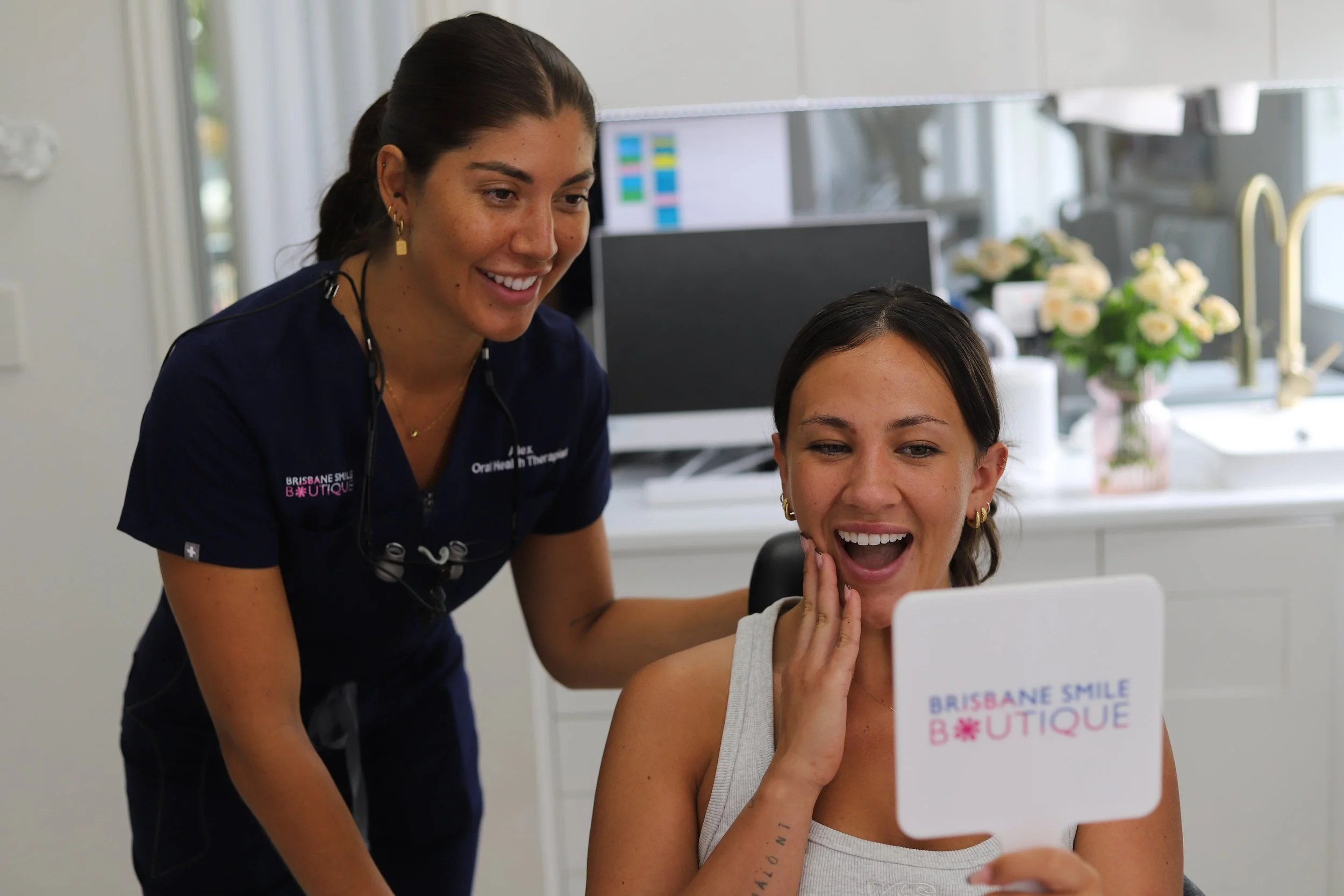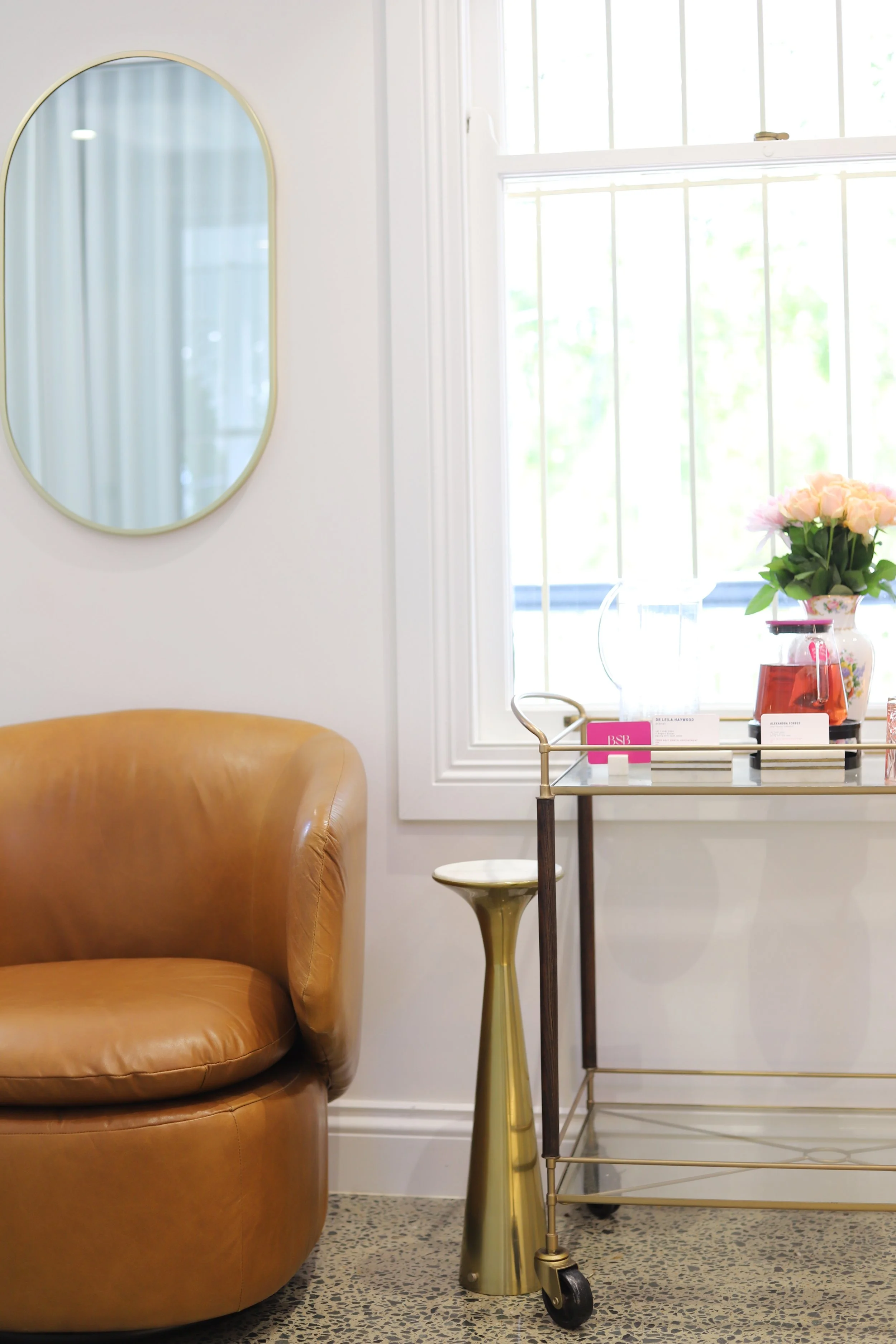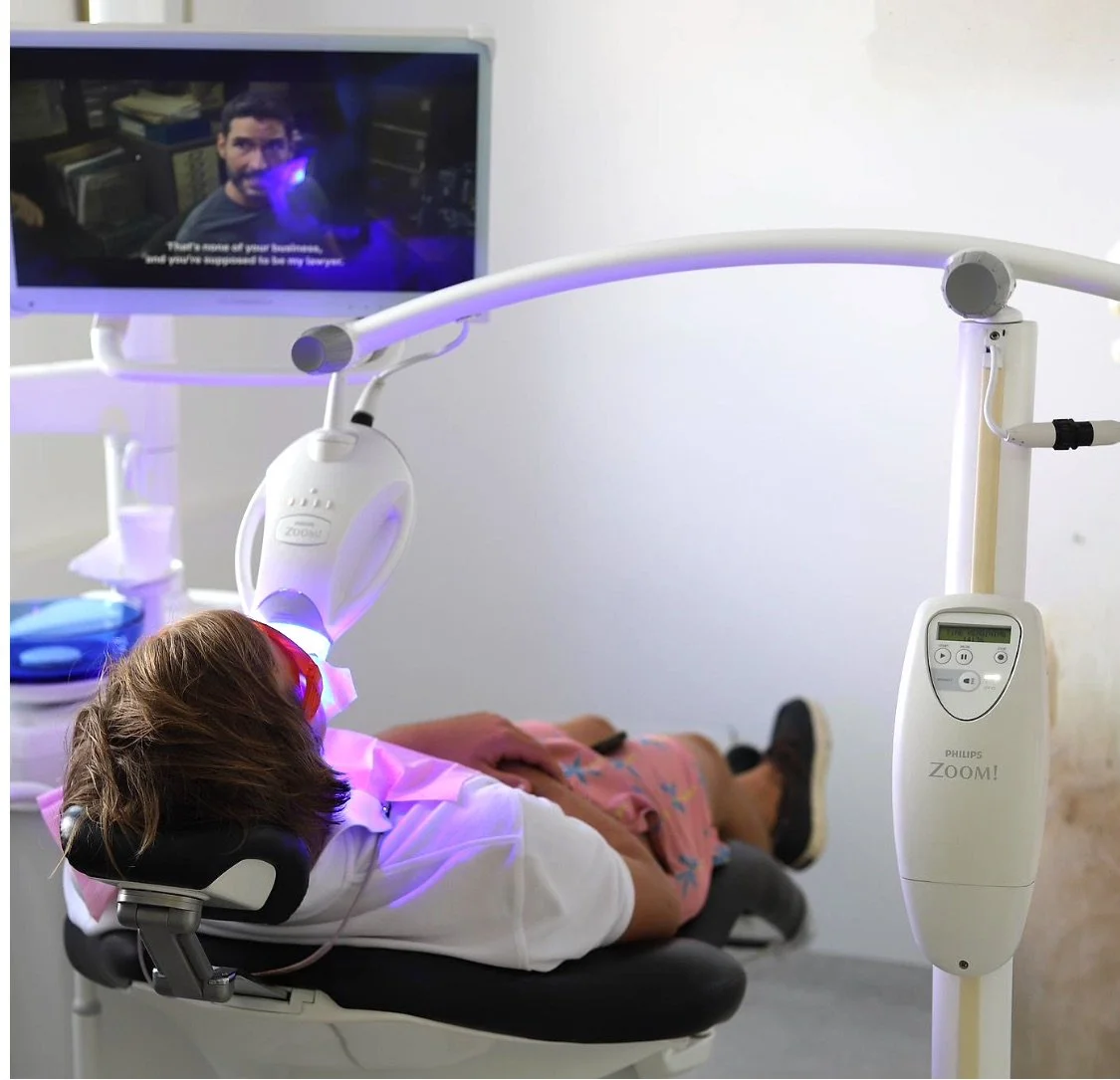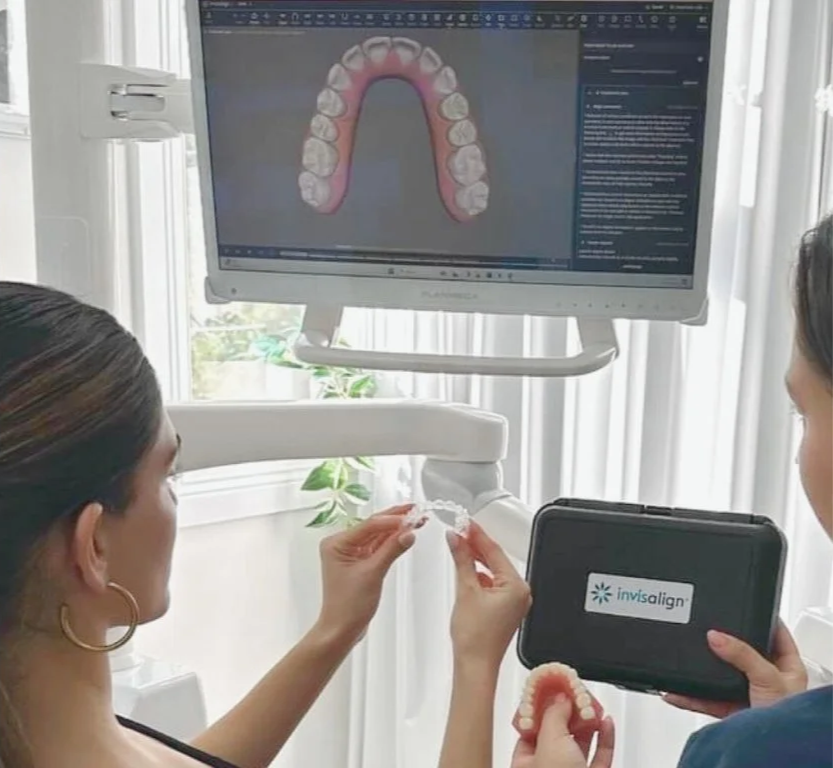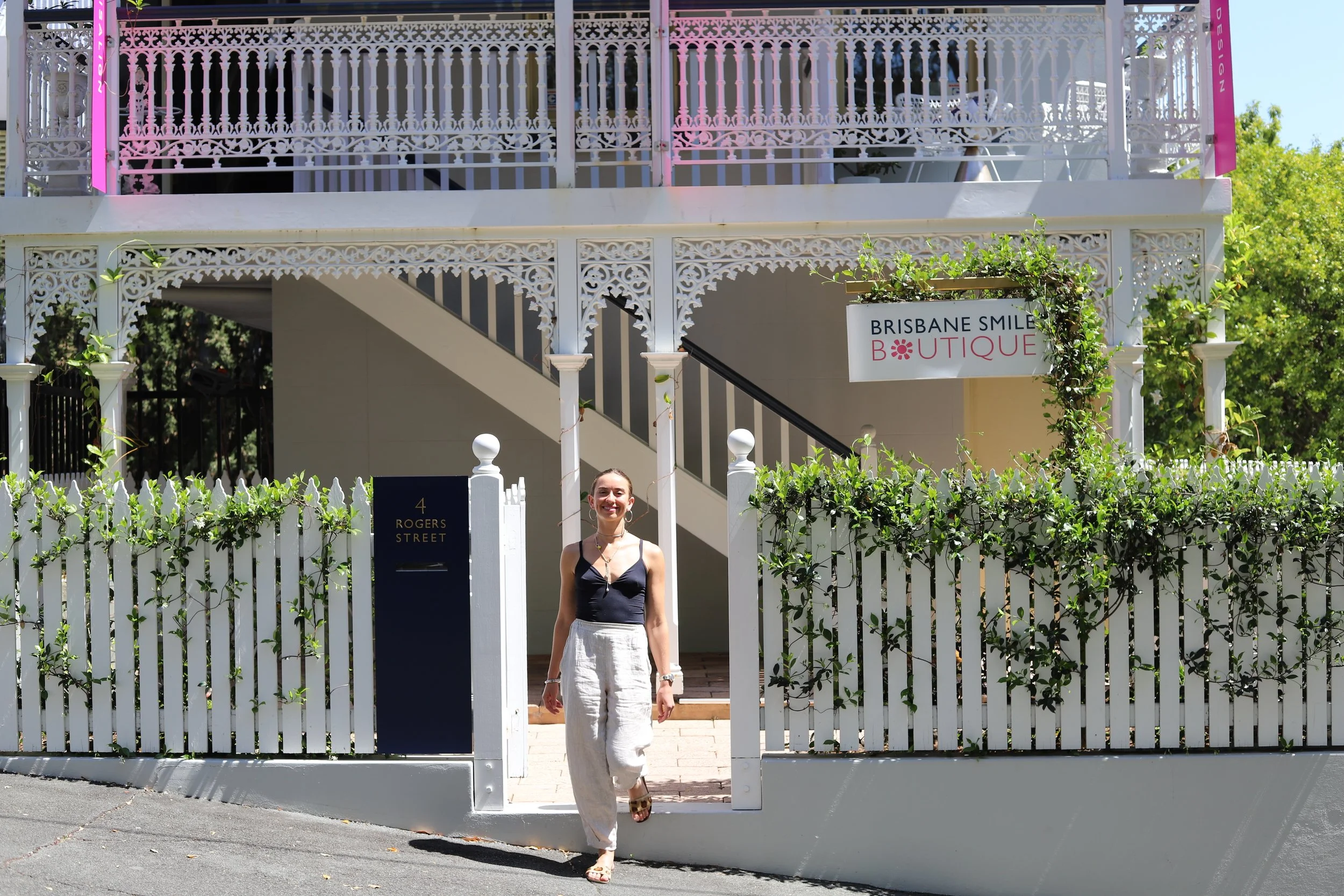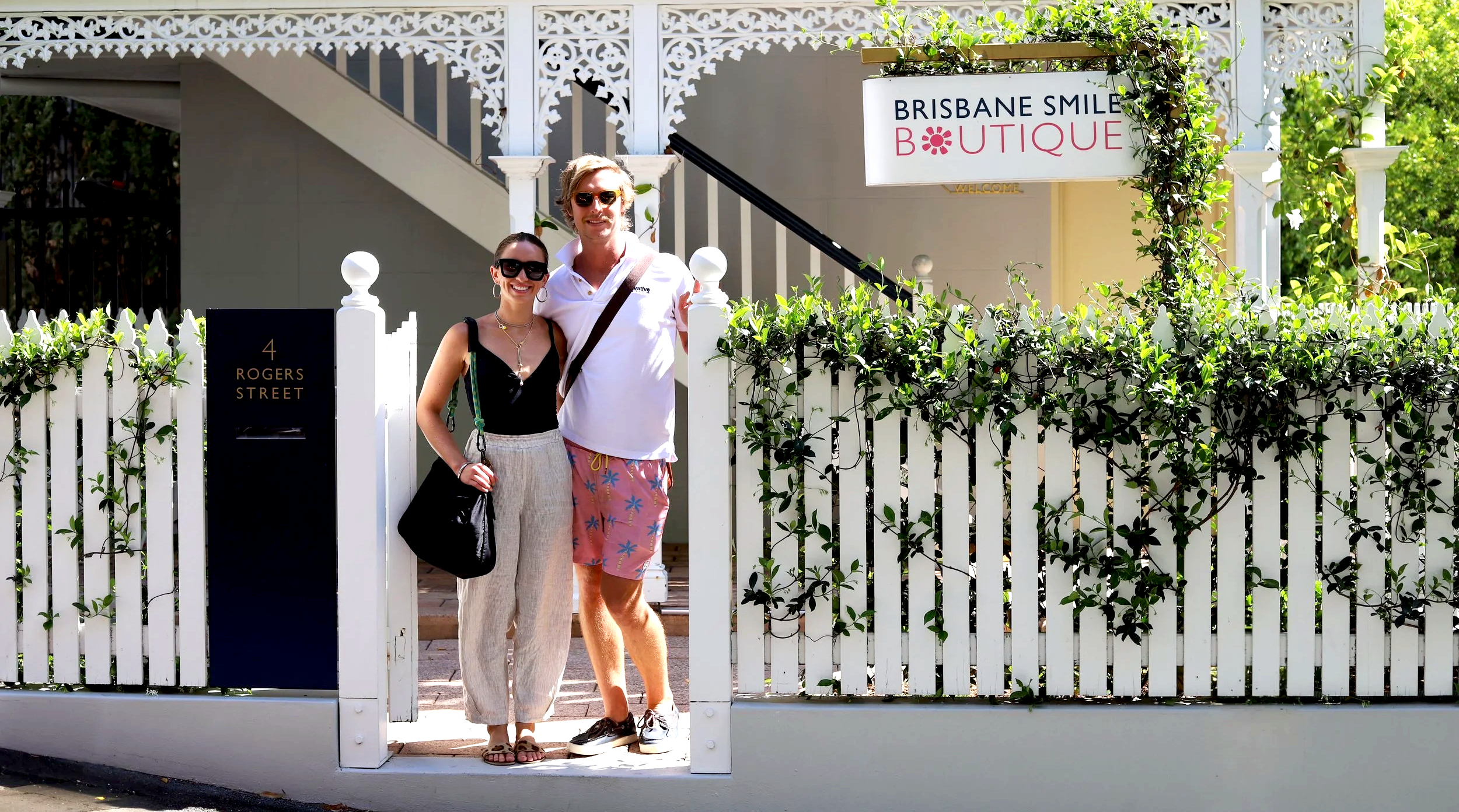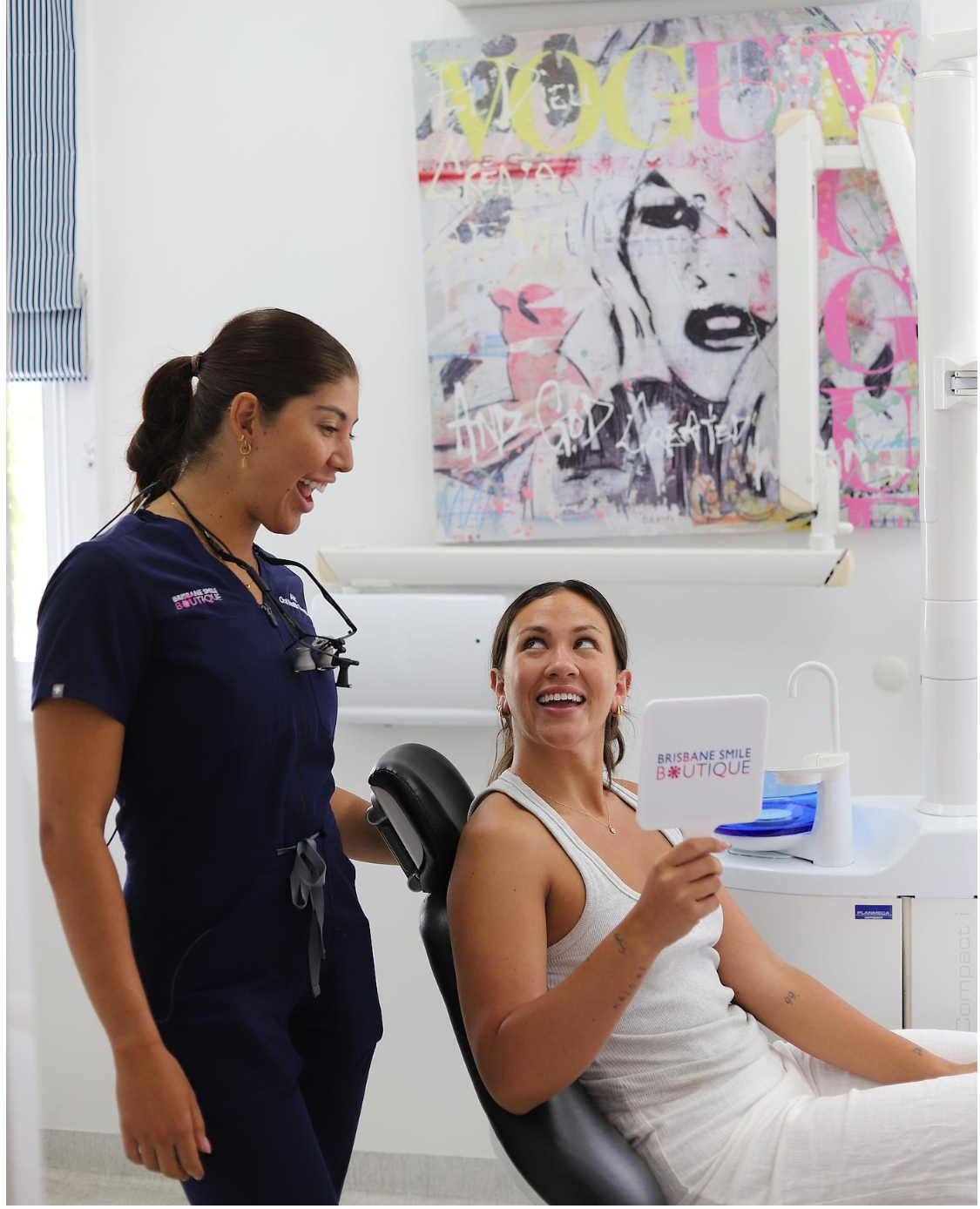Artistry & Precision.
Composite bonding is a quick, minimally invasive treatment used to repair chipped, discoloured, or uneven teeth. At Brisbane Smile Boutique, we use high-quality tooth-coloured resin to sculpt and enhance your smile in a single visit—no drilling or anaesthetic needed in most cases. It's a simple way to achieve natural-looking, beautiful results.
Composite Bonding at Brisbane Smile Boutique.
Discover how composite resin bonding can repair chips, close small gaps and restore your teeth’s natural colour with minimal intervention. This refined treatment creates a beautifully balanced smile while preserving healthy enamel.
Tooth Bonding.
Tooth bonding is a fast, effective way to improve the appearance of chipped, worn, or discoloured teeth. Using a tooth-coloured composite resin, our aesthetic dentists at Brisbane Smile Boutique carefully shape and polish the material to blend seamlessly with your natural teeth—often completed in just one visit, with little to no discomfort. A simple solution for a confident, refreshed smile.
-
Consultation & Shade Selection: We begin by discussing your smile goals and confirming suitability. A composite shade is chosen to blend seamlessly with your surrounding teeth.
Tooth Preparation: Only a light etching of the enamel is required to promote adhesion. This step is gentle and typically doesn’t require anaesthetic.
Bonding Agent Application: A conditioning liquid is applied to create a strong bond between enamel and resin.
Layering & Sculpting: Composite resin is applied in thin layers and artistically shaped to recreate natural tooth contours.
Curing: Each layer is hardened with a special light to secure it firmly.
Finishing Touches: Once cured, the bonded area is refined and polished so it matches the texture and bite of your natural teeth.
-
Conservative: Requires little to no removal of enamel, keeping your natural tooth structure intact.
Budget‑Friendly: Generally less costly than veneers or crowns.
Time‑Efficient: Typically completed in a single visit.
Aesthetic Versatility: Addresses chips, cracks, discolouration, gaps and minor misalignment.
Laboratory‑Free: Sculpted directly on your tooth, eliminating off‑site fabrication.
Custom Shade Matching: Resin shades match your natural teeth for a seamless look.
Instant Results: Walk out with your new smile immediately.
Reversible: Minimal enamel removal means changes can be made later if required.
Versatile Uses: Suitable for cosmetic enhancements and small fillings alike.
Repairable: If damage occurs, it can usually be repaired easily.
-
Less Durable: Composite isn’t as strong as porcelain and may chip or wear faster.
More Prone to Staining: Bonded teeth can stain over time, especially with coffee, tea or smoking.
Shorter Lifespan: Usually lasts around 5–10 years before a touch‑up or replacement is needed.
Restricted Aesthetics: Ideal for small to moderate changes; porcelain provides a more lifelike translucency for major transformations.
Maintenance: Requires careful oral hygiene and avoidance of habits like nail‑biting or chewing hard objects.
Limited for Large Repairs: Not recommended for teeth needing significant reinforcement.
-
At Brisbane Smile Boutique the cost of bonding varies according to your specific needs. Under Dr Leila’s care, you can expect a single tooth bonding to range between A$400 and A$1250
What affects the fee?
Procedure Complexity: More extensive reshaping or filling will be at the higher end.
Treatment Time: Appointments that require detailed sculpting or multiple teeth will cost more.
Material Needs: The type and amount of composite resin used contribute to the overall fee.
Because every smile is unique, we recommend booking a consultation. Dr Leila will evaluate your goals, provide a tailored estimate and help you decide if composite bonding is the best option for enhancing your smile.

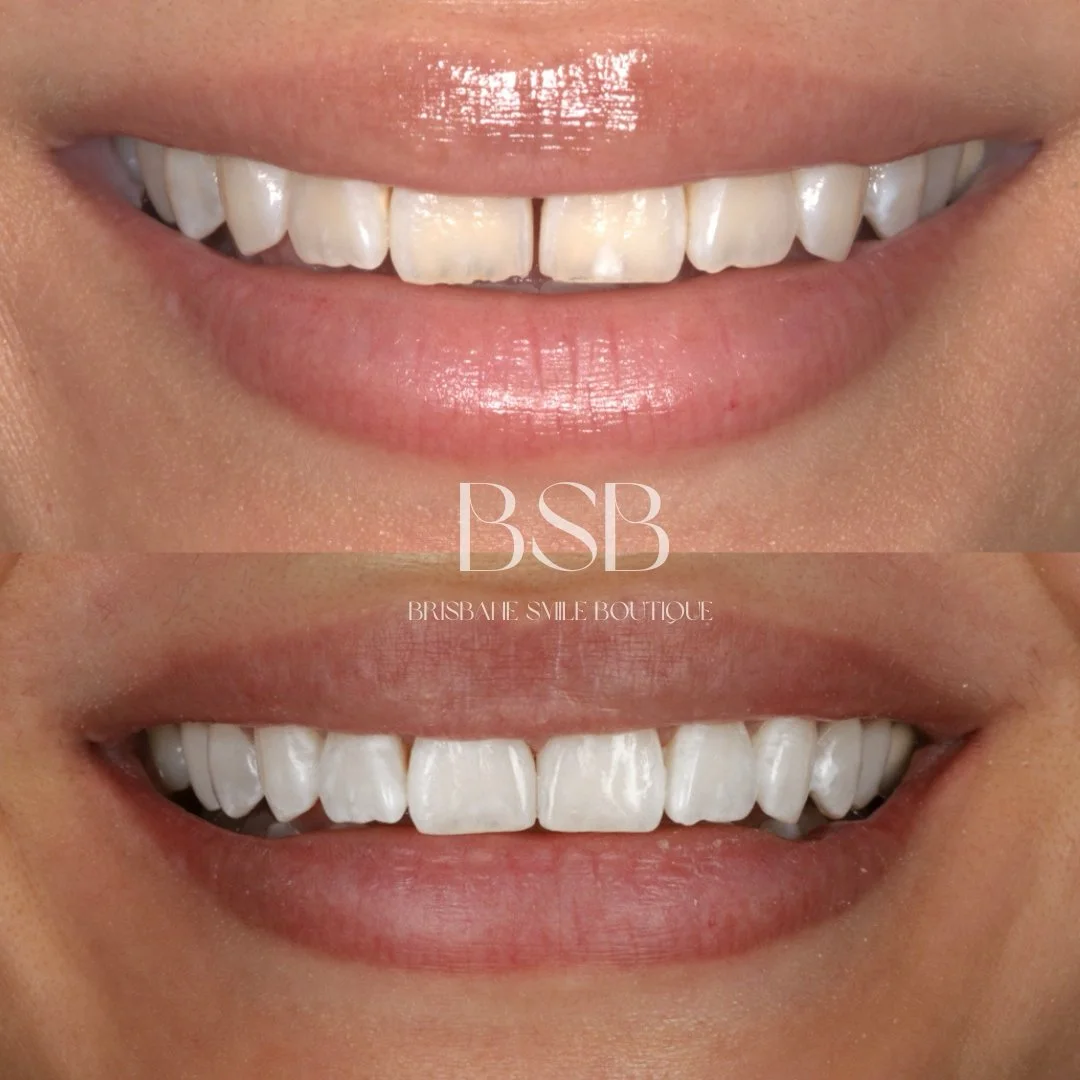




Brisbane Smile Boutique has been redefining Aesthetic Dentistry since 2003.
With a Lifetime of trusted Expertise, our Aesthetic Dentists create Exceptional Smiles with Precision, Artistry, and Care.
Connect directly with the Brisbane Smile Boutique Team.
If you could perfect one element of your Smile, what would it be?
Share your Thoughts.
Our Dedicated Aesthetic Team at Brisbane Smile Boutique are here to Understand your Vision and would love to assist.
AESTHETIC DENTISTRY TREATMENTS
PORCELAIN VENEERS
Brisbane Smile Boutique offers premium porcelain veneers designed to enhance your smile with natural looking, long lasting results. Custom crafted to suit your facial features and aesthetic goals, our veneers correct chips, gaps, discolouration, and uneven teeth. Achieve the confident, flawless smile you’ve always wanted with expert care and precision.
SMILE DESIGN
Discover the power of personalised Smile Design at Brisbane Smile Boutique, where your dream smile begins with expert planning and artistry. Simply upload a photo of your smile and explore customised treatment options tailored to your unique features and goals. Book your complimentary consultation today and take the first step toward the confident, radiant smile you deserve.
INVISALIGN®
Achieve a straighter, healthier Smile with Invisalign—clear, comfortable, and custom made. Use our interactive Smile Simulator to explore how aligners can transform your smile and correct bite issues before treatment even begins. Start your journey today with a personalised consultation and see the difference Invisalign can make.

